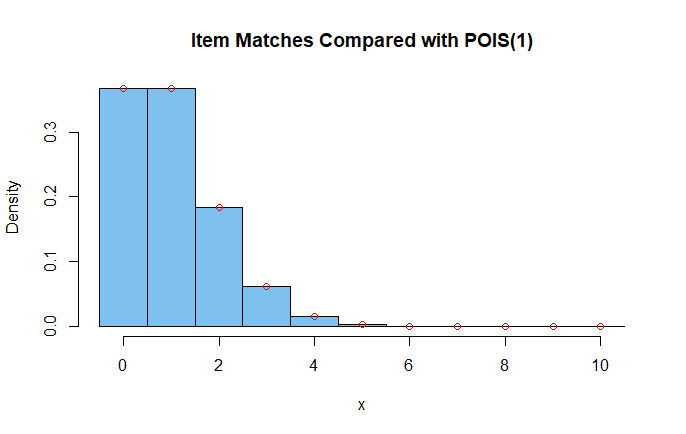In a test of ‘psychometry’ the car keys and wrist watches of 5 people are given to a medium. The medium then attempts to match the wrist watch with the car key of each person. What is the expected number of correct matches that the medium will make (by chance)?
I am stuck with this problem. I know that to obtain the expected number of matches, I need to first obtain the probability of getting a match. But the probability of getting a match is different after every guess the medium takes. So for example the probability of making a match for the first guess is $1/5$ since there is $1$ watch out of the $5$ that matches the corresponding key. And then after that guess the probability of a match is $1/4$ and so on. But how do I get a general probability? Am I reasoning about this problem the wrong way?

